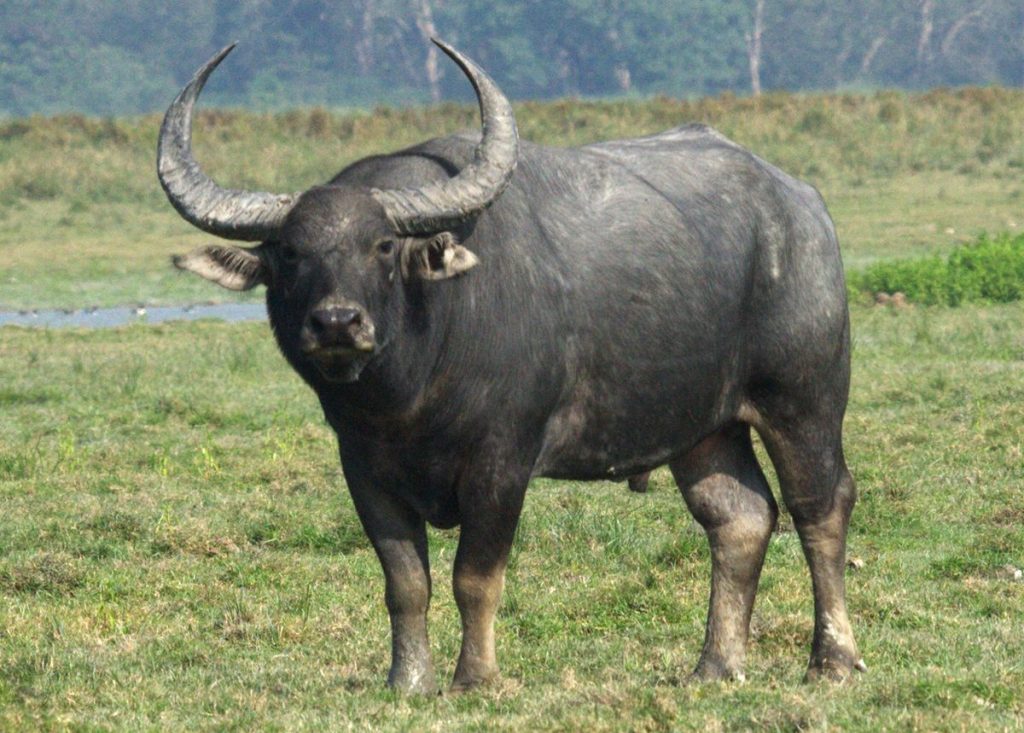[vc_row][vc_column][vc_column_text]
A sudden jump in buffalo meat shipments through southern ports has raised the question whether some of these might actually be beef from cattle (cow and its progeny), the export of which is banned. The basis for this is primarily two-fold. Between 2014-15 and 2016-17, India’s buffalo meat exports fell from 14.76 lakh tonnes (valued at Rs 29,289.16 crore) to 13.31 lakh tonnes (Rs 26,307.93 crore).
This was reflected at the Jawaharlal Nehru Port Trust (JNPT) at Nhava Sheva near Mumbai, the country’s biggest container-handling port, where the consignments fell by over a fifth. But the same period saw exports through Chennai and the nearby Kattupalli port going up by roughly five times.
Secondly, quite a few of those exporting sizable cargoes — between 50 and 250 full container loads (each of 28 tonnes) annually — from the two southern ports have processing plants in places as far away as Dasna (Ghaziabad) and Sahaspur (Bijnor) in Uttar Pradesh and Burma Camp (Dimapur) in Nagaland. The choice of ports, 2,000-3,000 km away from their plants, has raised questions.
“We have asked the firms to submit all the relevant documents to enable us to verify whether the exports are genuine buffalo meat consignments,” Devendra Kumar Singh, chairman, Agricultural & Processed Food Products Export Development Authority (APEDA), told The Sunday Express.
An official from the All India Meat & Livestock Exporters Association (AIMLEA) alleged that certain “fly-by-night operators” have been resorting to illegal export of beef, by falsely declaring these as frozen buffalo meat. The modus operandi is to source “suspect meat” mainly from southern states (where slaughter of cattle is permitted for local consumption), get it processed (i.e. de-boned and frozen) at a local plant, and then procure a health certificate from a facility having APEDA approval for export of buffalo meat.
The current rules mandate every meat export consignment to be subjected to microbiological tests, with a health certificate issued by a veterinary doctor from the concerned state animal husbandry department. This certificate has to be produced before the customs authorities for clearance of the container at the port. “In some cases, the exporter may even have an APEDA-approved plant, but the meat he is shipping out is from cattle that has been slaughtered and processed elsewhere,” said the AIMLEA official.
In July 2016, Ankit Kapoor, the owner of Global Foods International, a Delhi-based exporter, was arrested after his containers worth about Rs 1.2 crore, headed for the Middle East through Kolkata Port, were intercepted by the customs department. The meat was tested and found to be beef, despite being backed by a health certificate from UP’s animal husbandry department.
“Similar illegal consignments were going through JNPT as well, which stopped after the Maharashtra government’s comprehensive cattle slaughter ban legislation in March 2015. Since then, the action has shifted to the South, proof of which is the rise in shipments from ports there from 2015-16,” said the AIMLEA official.
According to him, the economics of illegal beef exports are compelling, given that the cost of a 400-kg live buffalo, delivered to an APEDA-approved abattoir-cum-processing plant in UP, is now around Rs 30,000-32,000. As against this, cattle of similar weight would be available at Rs 15,000-16,000, if not lower.
“Today, Maharashtra does not allow even bulls, bullocks and male calves to be slaughtered. All these animals are moving to the South, which, together with desperate farmers willing to sell at any cost, has brought down prices. It has also allowed unscrupulous exporters to exploit the arbitrage opportunities from the price difference between buffaloes and cattle,” he added.
Singh admitted the possibility of misuse of health certificates, especially when these are issued manually. “We plan to completely move to online application and issuance of health certificates through APEDA’s Meat.Net system. Doing this will make it possible to match the health certificates issued against each consignment, with the corresponding invoice/ shipping bills and the QR Code/ registration number of the exporting plant. This would ensure traceability and no scope for mis-declaration,” he said.
Meanwhile, S Sasti Kumar of Ponne Products Exports, which has an APEDA-approved processing plant at Dimapur and shipped out nearly 250 container loads of buffalo meat from Chennai, claimed it was more economical for him to export from southern ports rather than Kolkata or Haldia. “I export to the Middle East through JNPT and to Vietnam and other southeast Asian countries from Chennai. Moreover, all my other operations (poultry feed and egg exports) are based out of Chennai,” he said.
[/vc_column_text][/vc_column][/vc_row]







